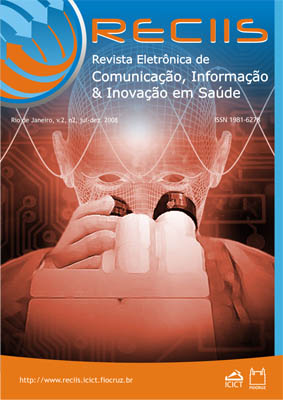Using a stakeholder analysis to assess the Mauritian food control system
DOI:
https://doi.org/10.3395/reciis.v2i2.845Keywords:
Food control system, stakeholder analysis, food safety, index, MauritiusAbstract
Governments have the responsibility to ensure food safety and meet the obligations of the World Trade Organisation. One way of achieving this objective is by establishing food control systems. Food control systems need to be continually evaluated for improvement and to achieve higher food safety status. This paper assesses the usefulness of a stakeholder analysis and the use of an index in the evaluation of a food control system in a developing country context, that is Mauritius. The methodology applied, comprised a literature review and a questionnaire-based stakeholder analysis. On average stakeholders believed that components of the food control system and compliance of the food industry were adequate. The response of participants from governmental bodies was however different from that of representatives of non-governmental bodies for administration, enforcement, institutional mechanism for consultation and policy-making on national food standards and regulations and opportunities to make views known to the Codex through the Government. These could indicate problem areas. With respect to the index devised for assessing a FCS, Mauritius was classified as a country with a satisfactory food control system. It is interesting to see how these findings tally with previous studies although it is fully acknowledged that the methodological approaches and the timeframes differ. The stakeholder analysis thus presented evidence of the status of the Mauritian Food Control System (MFCS) and allowed a rapid but thorough assessment of the overall system. Given that no work has been carried out before to develop a food control index and categorise a food control system, further research is warranted to validate this methodology. Based on the stakeholder analysis, it is recommended that monitoring ofthe food control system be increased and the roles of local stakeholders in food control be redefined. The interaction between regulatory and non-governmental bodies should also be increased.
Downloads
Published
How to Cite
Issue
Section
License
Author’s rights: The author retains unrestricted rights over his work.
Rights to reuse: Reciis adopts the Creative Commons License, CC BY-NC non-commercial attribution according to the Policy on Open Access to Knowledge by Oswaldo Cruz Foundation. With this license, access, download, copy, print, share, reuse, and distribution of articles is allowed, provided that it is for non-commercial use and with source citation, granting proper authorship credits and reference to Reciis. In such cases, no permission is required from the authors or editors.
Rights of authors’s deposit / self-archiving: The authors are encouraged to deposit the published version, along with the link of their article in Reciis, in institutional repositories.












